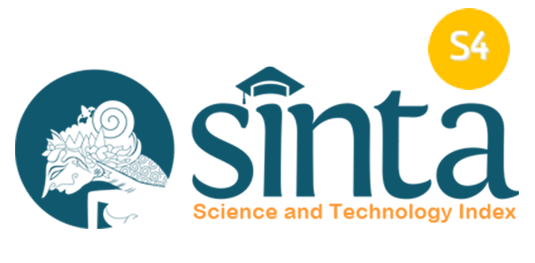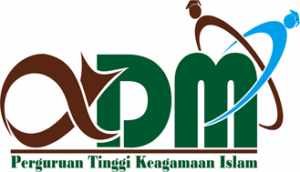Partnerships in mathematics and science teacher preparation in Zimbabwe
Abstract
Research evidence indicates that collaborative partnerships among stakeholders develop strong sense of ownership, interest and commitment, which promotes successful programme implementation. Research evidence also supports that loose partnerships adversely affect programme implementation. This study sought to explore the nature of partnerships among teacher education stakeholders in the pre–service Diploma in Education programme, offered at Teachers’ College S which is an associate of the University of Zimbabwe. Interviews with mentor teachers, pre-service teachers on attachment teaching practice/practicum, and head teachers were used to generate and collect data. Findings revealed existence of collaborative partnerships among Teachers’ College S, schools and the University of Zimbabwe. However, most mentor teachers expressed concern on absence of a policy guiding their operations. Recommendations to strengthen collaborative partnerships in pre–service teacher preparation were made.
Keywords
Full Text:
PDFReferences
Arthaud, T. J., Aram, R. J., Breck, S. E., Doelling, J. E., & Bushrow, K. M. (2007). Developing collaboration skills in pre-service teachers: A partnership between general and special education. Teacher Education and Special Education, 30(1), 1–12. Barmore, J. (2016). Pre-Service Teacher education: Connecting teaching principles to teaching practice (Doctoral dissertation). Harvard Graduate School of Education. Barnett, M. (2006). Using a web-based professional development system to support preservice teachers in examining authentic classroom practice. Journal of Technology and Teacher Education, 14(4), 701-729. Bentley-Williams, R., & Morgan, J. (2013). Inclusive education: Pre-service teachers’ reflexive learning on diversity and their challenging role. Asia-Pacific Journal of Teacher Education, 41(2), 173–185. Boudah, D. J., Schumacher, J. B., & Deshler, D. D. (1997). Collaborative instruction: Is it an effective option for inclusion in secondary classrooms? Learning Disability Quarterly, 20(4), 293–316. Bouldin, A. S. (2017). Reflection is not reflexive. American Journal of Pharmaceutical Education, 81(9), 6832. Bruïne, E. D., Willemse, T. M., Franssens, J., Eynde, S. V., Vloeberghs, L., & Vandermarliere, L. (2018). Small-scale curriculum changes for improving pre-service teachers’ preparation for Family-School Partnerships. Journal of Education for Teaching, 44(3), 381-396. Burton, T. (2015). Exploring the impact of teacher collaboration on teacher learning and development (Doctoral dissertation). University of South Carolina. Cortez, C., Nussbaum, M., Woywood, G., & Aravena, R. (2009). Learning to collaborate by collaborating: A face-to-face collaborative activity for measuring and learning basics about teamwork 1. Journal of Computer Assisted Learning, 25(2), 126–142. CSU. (2018). The power of partnership in teacher preparation: Preparing a new generation of educators for California. Brief 1, 1 – 9. Florian, L. (2012). Preparing teachers to work in inclusive classrooms: Key lessons for the professional development of teacher educators from Scotland’s inclusive practice project. Journal of Teacher Education, 63(4), 275–285. Graham, P., & Hudson-Ross, S. (1999). Teacher candidate research on literacy in high school classrooms. Teacher/Mentor: A Dialogue for Collaborative Learning, 65–79. Herold, F., & Waring, M. (2018). An investigation of pre-service teachers’ learning in physical education teacher education: Schools and university in partnership. Sport, Education and Society, 23(1), 95-107. Hoffman, K. T. & Adams, M. (2018). Re–envisioning student teaching and field experiences: Partnerships with community. Texas Child Care Quarterly, 42(1), 1–5. Irfan, S., Salman, Y., Jabeen, N., Ahmad, S. I., & Ansari, N. G. (2017). Towards understanding relational aspects of inter-organizational collaboration: An exploration of public-private partnerships in pakistan. Pakistan Economic and Social Review, 55(1), 53–79. Jones, M. M. (2008). Collaborative partnerships: A model for science teacher education and professional development. Australian Journal of Teacher Education, 33(3), 61-76. Karatzoglou, B. (2013). An in-depth literature review of the evolving roles and contributions of universities to education for sustainable development. Journal of Cleaner Production, 49, 44-53. Kecik, I., & Aydin, B. (2011). Achieving the impossible?: Teaching practice component of a pre-service distance English language teacher training program in Turkey. Australian Journal of Teacher Education (Online), 36(4), 73. Kervinen, A., Uitto, A., Kaasinen, A., Portaankorva-Koivisto, P., Juuti, K., & Kesler, M. (2016). Developing a collaborative model in teacher education–An overview of a teacher professional development project. LUMAT: International Journal on Math, Science and Technology Education, 4(2), 67–86. Lim, C. P., & Chan, B. C. (2007). MicroLESSONS in teacher education: Examining pre-service teachers’ pedagogical beliefs. Computers & Education, 48(3), 474-494. MaKinster, J., Barab, S., Harwood, W., & Andersen, H. (2006). The effect of social context on the reflective practice of preservice science teachers: Incorporating a web-supported community of teachers. Journal of technology and teacher education, 14(3), 543-579. Martin, J., Tett, L., & Kay, H. (1999). Developing collaborative partnerships: Limits and possibilities for schools, parents and community education. International Studies in Sociology of Education, 9(1), 59–75. Maynard, C., La Paro, K. M., & Johnson, A. V. (2014). Before student teaching: How undergraduate students in early childhood teacher preparation programs describe their early classroom-based experience. Journal of Early Childhood Teacher Education, 35(3), 244–261. Nyabadza, G., & Mutendera, G. (2014). Stress management among female student teachers on attachment teaching practice: The case of Marymount Teachers College, Zimbabwe. International Journal of Social Science and Education, 4(2), 429-436. OECD. (2013). PISA 2015: Draft collaborative problem solving framework. OECD Publishing. Ozturk, M. E. (2017). Collaboration with Families: Perceptions of Special Education Preservice Teachers and Teacher Preparation (Doctoral dissertation). University of South Florida. Petersen, J. E., & Treagust, D. F. (2014). School and university partnerships: The role of teacher education institutions and primary schools in the development of preservice teachers’ science teaching efficacy. Australian Journal of Teacher Education, 39(9), 153-167. Reich, Y. (2017). The principle of reflexive practice. Design Science, 3, 1-27. https://doi.org/10.1017/dsj.2017.3 Ryan, T. G., Young, D. C., & Kraglund-Gauthier, W. L. (2017). Action research within pre-service teacher education. Transformative Dialogues: Teaching & Learning Journal, 10(3), 1-18. Smith, T. E., Gartin, B. L., & Murdick, N. L. (2011). Including adolescents with disabilities in general education classrooms. Pearson Higher Ed. Taylor, L. K., Cook, P. F., Green, E. E., & Keith Rogers, J. (1988). Better interviews: The effects of supervisor training on listening and collaborative skills. The Journal of Educational Research, 82(2), 89–95. Valencia, S. W., Martin, S. D., Place, N. A., & Grossman, P. (2009). Complex interactions in student teaching: Lost opportunities for learning. Journal of Teacher Education, 60(3), 304–322. Wasburn-Moses, L., Kopp, T., & Hettersimer, J. E. (2012). Prospective teachers’ perceptions of the value of an early field experience in a laboratory setting. Issues in Teacher Education, 21(2), 7–22. Weiss, M. P., Pellegrino, A., & Brigham, F. J. (2017). Practicing collaboration in teacher preparation: Effects of learning by doing together. Teacher Education and Special Education, 40(1), 65–76. Willemse, T. M., Thompson, I., Vanderlinde, R., & Mutton, T. (2018). Family-school partnerships: A challenge for teacher education. Taylor & Francis. Zeichner, K. (2010). Rethinking the connections between campus courses and field experiences in college-and university-based teacher education. Journal of Teacher Education, 61(1–2), 89–99.
DOI: https://doi.org/10.18860/ijtlm.v2i2.9341
Refbacks
- There are currently no refbacks.
Copyright (c) 2020 International Journal on Teaching and Learning Mathematics

This work is licensed under a Creative Commons Attribution-NonCommercial-ShareAlike 4.0 International License.
Indexed by :
.png)
.jpg)
.png)

.jpg)



